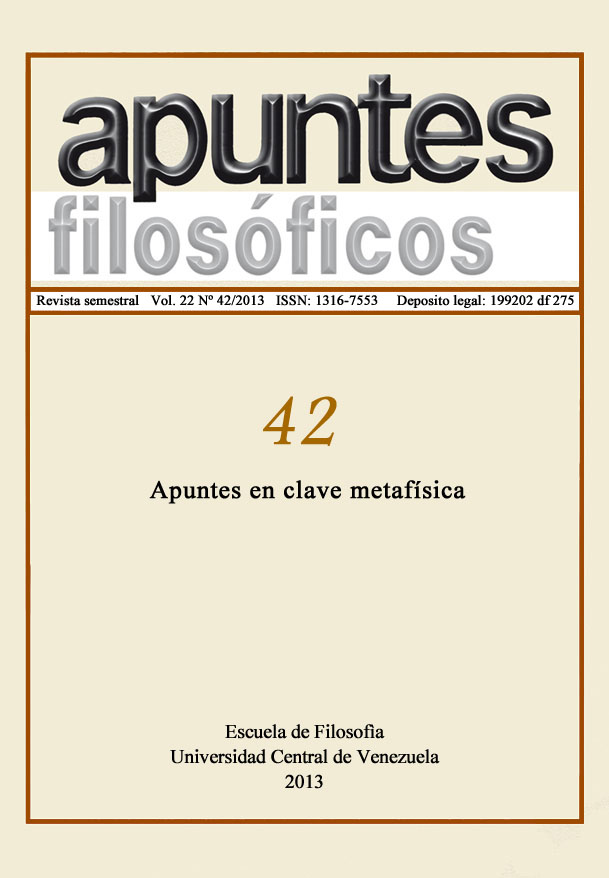Agustín de Hipona y la Naturaleza Humana
Palabras clave:
ser del hombre, naturaleza dialéctica, ser en, ser para, Man’s Being, Dialectical Nature, To be In, To be For.Resumen
Toda la vida de San Agustín fue una intensa búsqueda de la definición del hombre. Recorrió en sus meditaciones las tres direcciones que acotan el campo de la investigación antropológica: el ser del hombre, su perduración más allá de la vida y el sentido de su existencia. Él descubrió que la naturaleza del hombre es “dialéctica”: es un ser que está en un mundo hecho para él, pero él es hecho para Dios. Como no hay una adecuación entre su ‘ser en’ y su ‘ser para’, el hombre se convierte en un discurso abierto infinitamente, cuyo final trasciende sus posibilidades. Además, el hombre ocupa un lugar intermedio en la configuración ontológica del universo agustiniano, un medio entre la Nada y el Todo, entre el cuerpo y el Creador del sí mismo y del cuerpo. De hecho, en la Enarración al Salmo 109, explica así la condición mortal, finita, del ser humano: “Como el torrente recoge las lluvias y se hincha, salta, se despeña, y corriendo acaba su carrera, así es todo el curso de la mortalidad… el género humano, de lo oculto va apareciendo y corre; con la muerte otra vez se oculta. En el intermedio resuena y pasa”. Es decir, el hombre es un murmullo entre dos abismos.
Agustine of Hippo and human nature
Abstract
The life of St. Augustine was an intense search for the definition of man. He studied the three directions that delimit the field of anthropological research in his meditations: the being of man, his endurance beyond life, and the meaning of their existence. He discovered that the nature of man is "dialectical": he is a being that is in a world made for him, but he is made for God. As there is not a match between 'being in' and 'being for', the man becomes a speech open infinitely, the end of which transcends its possibilities. Furthermore, humankind has an intermediate place in the ontological configuration of the Augustinian universe, a medium between nothing and everything, between the body and the creator of the self, and of the body. In fact, in the Enarracion to the Psalm 109, explains the mortal and finite condition of the human being: "As the stream collects rain and swells, jumps, falls, and running ends its career, so is the entire course of mortality... the mankind, from the occult will appear and run; with death again is hidden. It resonates in the intermediate and passes". I.e., the man is a whisper between two abysses.

